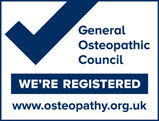Is back pain age related?
Muscular and joint aches and pains for no apparent reason used to be the preserve of the elderly. Unless injured, children would enjoy pain free days whilst they listened to their parents and grand parents groaning from one headache to the next, or moving gingerly whilst holding their lower backs in discomfort. It seems that this is no longer the case. An article in the Times on 23/4/15 was headlined “Youngsters are becoming sitting targets for back pain”. Practitioners have noticed an increase in children and young adults requiring their services regularly and frequently. A particularly disturbing result in a survey found that one in four of the 86 % who described back pain, suffered its effects on a daily basis.
At northlondonosteopaths.co.uk, Alan Nevies and his colleagues maintain this is unacceptable and avoidable. Unacceptable because whilst a person is in the early stages of life and adult hood the conditions associated with aging should not apply to them. Their mobility should not, in the absence of some physiological reason, be restricted. Their energy levels should be high. Their ability to lead active lifestyles should be unimpaired. If the young age category lead the active lifestyles of which they are capable, both by incorporating exercise in their daily routines by walking further, taking the stairs instead of using the lift for example, and by doing more sport, they should not be suffering the pain of the old. Parents of children must play a leading in role in letting their children walk and cycle rather than being ferried everywhere by car. Parents must ensure that sitting in front of screens must not be the main hobby and position for their offspring. The good advice to lead as active a lifestyle as possible holds true for all ages. It is particularly depressing when the failure of young people to do so causes pain and impaired quality of life as a result.
Alan Nevies recommends that young people (of all ages) studying or working and thus spending long hours sitting should adopt the following practices:
Always get up after around 45 minutes and do a little muscle stretch by leaning forwards and backwards.
Maintain a good posture and use back supports if needed.
Drink water throughout the day as hydration is very important for mind and body.
Have a good excercise regime which will keep muscle groups at peak fitness.
Listen to our advice and keep moving and smiling.


